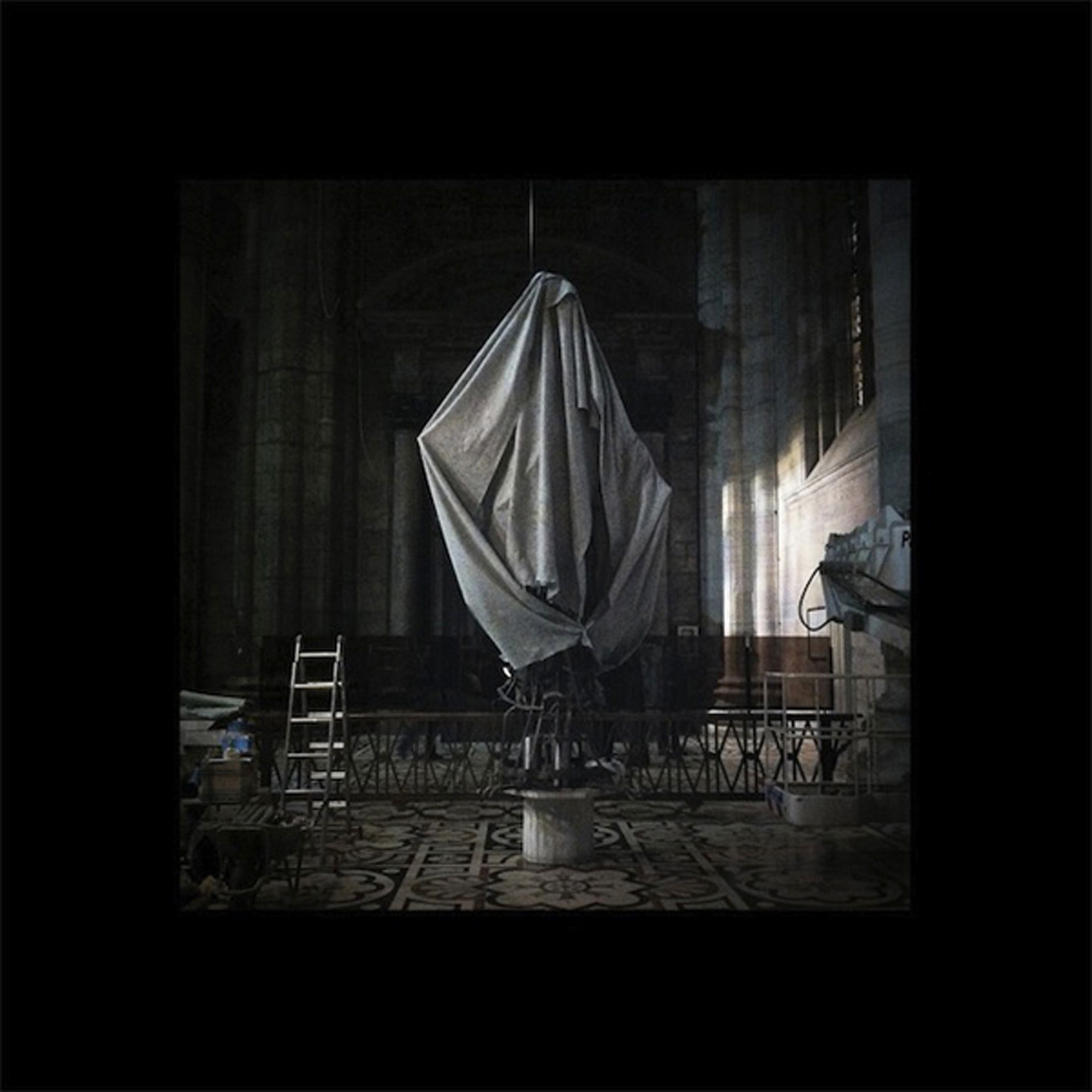Tim Hecker, "Virgins"
 It is hard to believe that Tim Hecker is still managing to pull fresh rabbits out of his hat seven solo albums into his career, but Virgins is an expectation-defying monster of an album.  While it certainly still sounds like a Tim Hecker album in a broad, general sense, several of these pieces feel far more like dissonantly avant-garde classical music than anything resembling laptop soundscapes or crackly ambient music.  I mean that in the best possible way, of course, as this is easily the heaviest, most complex, and most disturbing thing that Tim has ever done.  It is also the best.
It is hard to believe that Tim Hecker is still managing to pull fresh rabbits out of his hat seven solo albums into his career, but Virgins is an expectation-defying monster of an album.  While it certainly still sounds like a Tim Hecker album in a broad, general sense, several of these pieces feel far more like dissonantly avant-garde classical music than anything resembling laptop soundscapes or crackly ambient music.  I mean that in the best possible way, of course, as this is easily the heaviest, most complex, and most disturbing thing that Tim has ever done.  It is also the best.
As much as I love Tim Hecker, I have always thought of him as something of a meditative, meticulous, and predictable sort, destined to continually impress me with his depth and craftsmanship, but unlikely to ever knock me sideways with any surprises.  Consequently, I was completely blindsided by the gnarled harmonies and roiling immensity of the Virgins' opening "Prisms," which resembles nothing less than an all-enveloping sonic nightmare.  It is not a particularly long piece, but it definitely sets a very disquieting mood for the rest of the album: I guess Tim Hecker was finally ready to bare his teeth and get a bit scary.
Fortunately for the album's listenability, however, Hecker also tackles quite a few other moods over the course of Virgins' duration, making for a wonderfully varied and dynamic arc.  To his credit, Tim rarely returns to familiar territory without adding some kind of twist.  The most prominent innovations are probably the aforementioned digressions into neo-classical territory, which manifest themselves in somewhat muted form in the clean, rippling minor key piano reverie of "Black Refraction" and warm, flute-like harmonium of the aptly titled "Amps, Drugs, Harmonium."  However, even reprises of some older directions include unexpected improvements like buried beats, a melancholy woodwind melody, or a shivering insectoid hiss.
Hecker takes his classical aspirations into rather extreme territory, however, with the two-part "Virginal," the second part of which easily steals the album.  Even the first part is a bit overwhelming though, sounding like classical minimalism layered into oblivion and processed until it becomes a buzzing, groaning, and crunching nightmare.  It feels a lot like being trapped in a room with a dozen deafeningly amplified music boxes playing out-of-sync, clashing notes until I start to go mad. The second half then somehow reprises the same motif, but makes the dissonance even more jarring and unhinged-sounding until it evokes nothing less then absolute, grinding horror.  That is a stunning accomplishment in its own right, but Tim outdoes himself by burying small oases of musicality within even the most clangorous hellscape and also manages to segue into and out of teeth-rattling dissonance so seamlessly that it all feels perfectly natural.
Virgins is the rare album where almost every song stands out in some way.  For sheer jaw-dropping power and vision, "Virginal" cannot be topped, but Hecker also offers up quite a few moments of sublime warmth and beauty ("Radiance" and "Live Room Out," for example), as well as a pair of very different pulse-based closers ("Stigmata II" and "Stab Variation") that I loved as well.  That said, all of the individual songs bleed together to create a fluid, complex, and absolutely devastating whole, which is how Virgins demands to be heard.
I honestly cannot praise this album enough, as Hecker has now reached a plateau for sound art that I would not have imagined prior to hearing this album.  While some of these pieces certainly forge new territory, the most striking aspect of all is how so many pieces of the puzzle come together at once.  Virgins succeeds brilliantly on literally every level: the songs are great, the sequencing is perfect, the transitions from fragility to crushing density feel natural, the production is absolutely immense-sounding (Ben Frost was back)–even the textures are inspired, as Hecker skillfully balances his more processed-sounding laptoppery with warm woodwinds, sharply percussive piano, and a healthy amount of metallic grinding.
In short, Virgins is absolutely essential.  It is also probably a once-in-a-lifetime achievement, as no sane person would ever attempt something this ambitious, complex, and multilayered twice.  If I were Tim Hecker, I would have concluded these sessions by dropping my laptop in the garbage, high-fiving the engineer, then vanishing to a houseboat in the Caribbean forever.
Samples can be found here.



